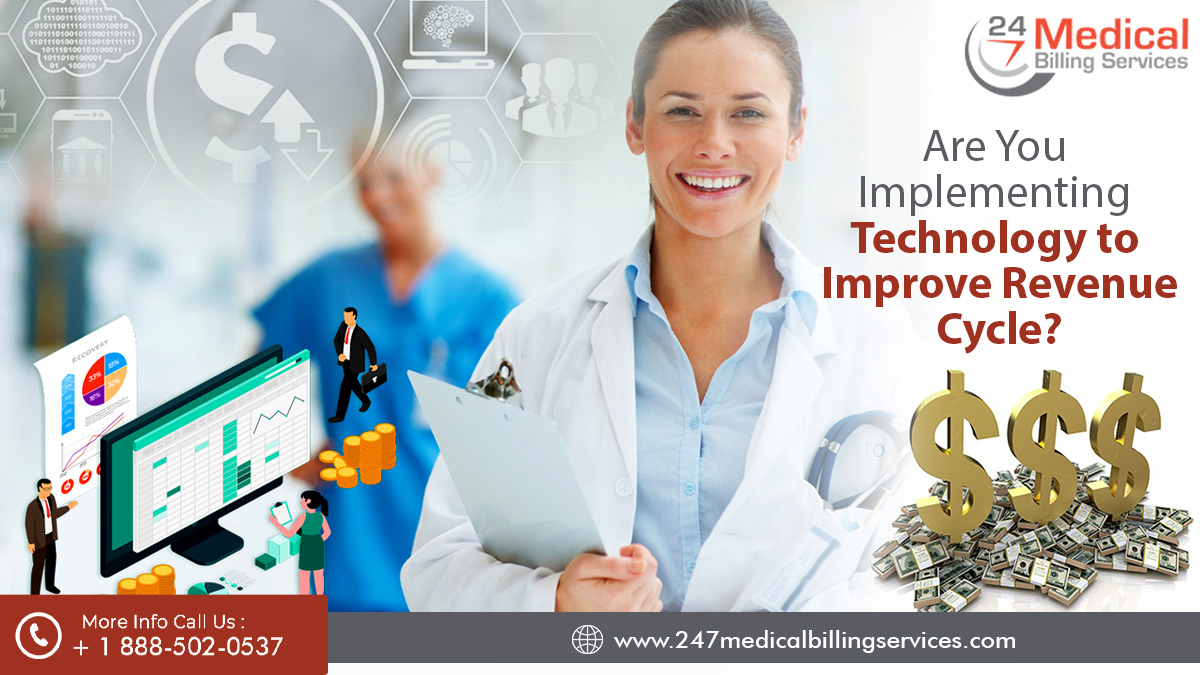
Are You Implementing Technology to Improve Revenue Cycle?
Technology has simplified revenue cycle management for many practices. By implementing new technology ideas, providers have been able to extract greater profitability from their day-to-day operations. For instance, analytics has helped providers make informed business decisions. It has helped them detect changes before they become obvious.
If you want to produce good results for your bottom line, them it becomes necessary to evaluate technology and implement it in an effective manner. With technologies, automation increases and this helps reduce the chances of errors, thereby increasing clean claim percentage. With the help of technology, practices are finding new ways to run their business. It is enabling them to reduce staff costs through boost in productivity.
Growing number of providers are focused on implementing technology in order to drive their RCM improvements. Technology-related capabilities, including analytics, business intelligence, revenue integrity, electronic health record-enabled workflow, physician/clinician documentation and coding.
However, there are many healthcare organisations that are lacking on the revenue front. Even after making significant investments in their revenue management data systems, they are not seeing a boost in cash flow due to two main reasons: either their systems aren’t set up properly or the people running the systems aren’t aware of how to use them accurately.
Practices not only need to implement technology that supports and enhances revenue cycle processes but also invest time in staff training. Support for revenue cycle process changes also need to be communicated from the top. Technology requirements need to be linked with business needs and only when this happens, desired results can be achieved.
Even though technology is required for improving revenue cycle management, it alone cannot lead to better financial health of the practice. Skilled staff to run the technology in an efficient manner is also a necessity that needs to be fulfilled.
Physicians are bringing technology into use for preventing revenue leakage. They are taking the required steps to leverage data for preventing the leaking of income through cracks in the revenue cycle. This is especially required in an age where payments for physicians are tied to the outcomes via CHIP Re-authorization Act and Medicare Access.
Unfortunately, many physicians are not able to take their attention away from providing quality care which is affecting their payments and clinical outcomes. This has made it necessary for them focus on the correct implementation of technology to run a profitable business.


.png)
